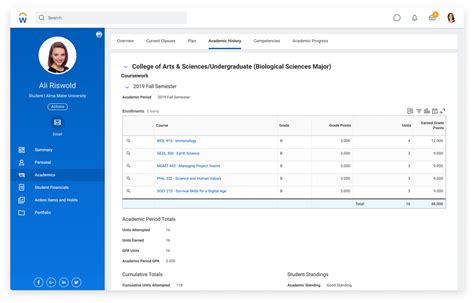As a parent, you have the right to access your child’s educational records. This includes their report cards, transcripts, standardized test scores, and disciplinary records. However, there are some exceptions to this rule.

Who is Eligible to Look at a Student’s Records?
The following people are eligible to look at a student’s records:
- The student themselves
- The student’s parents or guardians
- School officials with a legitimate educational interest
- Certain government officials, such as law enforcement officers or child protective services workers
Exceptions to the Rule
There are a few exceptions to the rule that parents have the right to access their child’s educational records. These exceptions include:
- If the student is 18 years old or older and has not designated their parents as their educational decision-makers.
- If the records contain information that is considered confidential, such as medical or psychological information.
- If the records are being used for law enforcement purposes.
How to Request Access to Student Records
If you want to request access to your child’s educational records, you should contact the school district’s records custodian. You can usually find the contact information for the records custodian on the school district’s website.
What to Do if You Are Denied Access to Student Records
If you are denied access to your child’s educational records, you can file a complaint with the U.S. Department of Education. The Department of Education will investigate your complaint and determine if the school district has violated your rights.
Why it Matters
Having access to your child’s educational records is important for several reasons. These reasons include:
- It allows you to monitor your child’s progress and make sure that they are receiving the education that they need.
- It can help you identify any areas where your child is struggling and needs extra support.
- It can help you make informed decisions about your child’s education.
Benefits of Having Access to Student Records
There are several benefits to having access to your child’s educational records. These benefits include:
- Improved communication between parents and teachers
- Increased parental involvement in their child’s education
- Better student outcomes
Tips for Parents
Here are a few tips for parents who want to access their child’s educational records:
- Be prepared to provide proof of your identity, such as a driver’s license or passport.
- Be specific about the records that you want to access.
- Be patient. It may take some time for the school district to process your request.
Step-by-Step Approach
Here is a step-by-step approach to requesting access to your child’s educational records:
- Contact the school district’s records custodian.
- Provide proof of your identity.
- Be specific about the records that you want to access.
- Be patient. It may take some time for the school district to process your request.
Conclusion
As a parent, you have the right to access your child’s educational records. This right is important for several reasons, including monitoring your child’s progress, identifying areas where they need extra support, and making informed decisions about their education. If you are denied access to your child’s educational records, you can file a complaint with the U.S. Department of Education.
